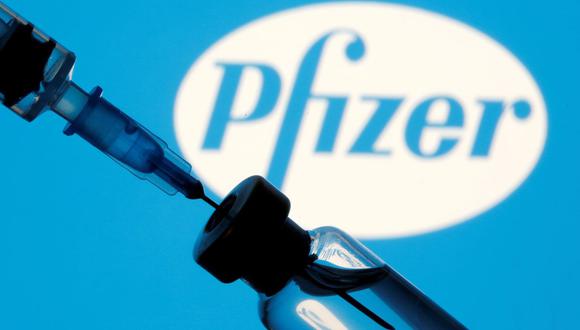CONDENA MH CLÚSTER ATAQUE ARMADO A HOSPITAL ARCÁNGELES
Leer más
COVID-19: Moderna vaccine may reduce infection risk more than Pfizer

- The Moderna and Pfizer vaccines have been highly effective at preventing COVID-19.
- In a new study, researchers looked at the differences in effectiveness between the two vaccines.
- They found that people who had received two doses of the Moderna vaccine were less likely to develop COVID-19 or become hospitalized with the illness than people who had received the Pfizer vaccine.
Both the Moderna and Pfizer COVID-19 vaccines are messenger ribonucleic acid (mRNA) vaccines — a relatively new type of vaccine technology.
These COVID-19 vaccines work by providing our cells with instructions for making a SARS-CoV-2 protein. Our immune system then reacts to these proteins and develops the tools to respond to any infection with the virus in the future.
Stay informed with live updates on the current COVID-19 outbreak and visit our coronavirus hub for more advice on prevention and treatment.
Scientists from the Centers for Disease Control and Prevention (CDC) have found that both the Moderna and Pfizer vaccines are very effectiveTrusted Source at protecting people from COVID-19.
CDC Director Dr. Rochelle P. WalenskyTrusted Source points to “accumulating evidence that mRNA COVID-19 vaccines are effective and should prevent most infections.” She adds that “Fully vaccinated people who still get COVID-19 are likely to have milder, shorter illness and appear to be less likely to spread the virus to others.”
“These benefits are another important reason to get vaccinated.”
In the latest study, researchers investigated the differences in rates of “breakthrough” cases of COVID-19 among people who received the Moderna or Pfizer vaccines. A breakthrough case is when the disease develops in someone who has been fully vaccinated against it.
The team was also interested in any differences between rates of hospitalization and death due to COVID-19 among people who received either vaccine.
For their analysis, the researchers drew on health records from 89 million people in the United States. The data included people with a wide range of demographic characteristics.
The team looked at data taken between July and November 2021, when the Delta variant of COVID-19 was the main variant of the virus.
The results appear as a research letter in JAMATrusted Source.
The researchers found that in November 2021, there were 2.8 breakthrough cases of COVID-19 in people fully vaccinated with the Pfizer vaccine per 1,000 people. They included breakthrough cases if the people had not received the booster vaccination or had not had a prior recorded infection with SARS-CoV-2.
For the Moderna vaccine, the monthly figure was significantly lower, at 1.6 breakthrough cases per 1,000 people who received these shots.
The risk of hospitalization in the 60 days after infection was also lower for people fully vaccinated with the Moderna vaccine: 12.7% for Moderna versus 13.3% for Pfizer.
The researchers did not see a significant difference in mortality rates between the two vaccine groups.
Medical News Today spoke with Dr. Rong Xu, a professor of biomedical informatics at Case Western Reserve University’s School of Medicine and the corresponding author of the new study.
Dr. Xu noted, “We compared recipients of these two vaccines while accounting for patient risk factors, different approval time, and varying time from vaccination.”
“I think that inherent difference in these two vaccines may have partially accounted for the observed difference in both breakthrough infection and hospitalization.”
Dr. Xu thought that both vaccines would continue to be effective against the Omicron variant of SARS-CoV-2.
“My speculation is that we can expect that vaccines are effective against severe clinical outcomes associated with Omicron variant infections, as studies showed that vaccines can elicit T cell immunity, which may offer protection against Omicron. We will conduct a similar study for [SARS-CoV-2] infection with Omicron,” Dr. Xu said.
Dr. Pamela B. Davis, the Arline and Curtis Garvin research professor at the Center for Community Health Integration and a co-author of the study, highlights that “Although there is a difference in breakthrough infections, both vaccines are highly protective against SARS-CoV-2 infection and especially against the most severe consequences of infection.”
“Further studies are required to assess the results of booster doses and also the protection afforded especially vulnerable populations by vaccines.”
Créditos: Comité científico Covid




